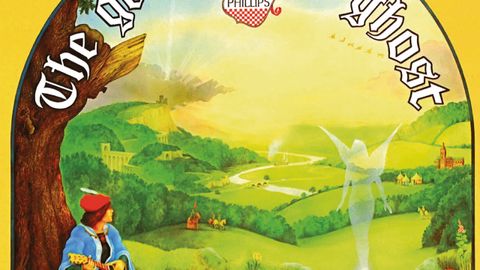Guitarist Steve Hackett deserves credit with drummer (and arranger) Phil Collins for enabling Genesis to evolve from a precocious collage of King Crimson, Family and Procol Harum to the distinctive, stellar group they became.
However it would be entirely remiss to downplay the contributions of original guitarist Anthony Phillips. His 12-string guitar work in particular continued to echo through the group’s entire 70s output following his departure due to stagefright at the start of the decade.
Packaged here across three discs (a sparkling remaster, a 5.1 version and selection of demos and original tracks) his 1977 solo debut The Geese And The Ghost stemmed from a piece entitled D Instrumental, co-written with Mike Rutherford in 1969. This transformed into the title track of an album which Phillips and Rutherford had initially intended to be a collaborative release, but due to the latter’s commitments with the increasingly popular and successful Genesis the recording was staggered over the ensuing decade. It was eventually released under Phillips’ own name but bears Rutherford’s unmistakable imprint, and that of Collins, who contributes vocals to Which Way The Wind Blows and God If I Saw Her Now. Much like Steve Hackett’s 1975 solo debut Voyage Of The Acolyte (which also features Rutherford and Collins) it can be considered part of the extended Genesis canon.
It’s a valuable addition, too. Phillips’ 12-string guitar is endlessly listenable and benefits from its position within nuanced arrangements. These make inspired use of a variety of instrumental textures (cello, oboe, piano, cor anglais etc) and epitomise a subtle, understated variety of 70s progressive rock, one too often overshadowed by its brasher counterparts. His collaborations with Rutherford meanwhile serve as pleasing extensions of the atmospheres and environments crafted on Genesis’ pivotal 1970 album Trespass, although both musicians had become more assured and confident over the intervening seven years.

